Interview with John Kerastas, author of 'Chief Complain, Brain Tumor'
JOHN KERASTAS has worked at a global advertising agency, at several technology start-up companies and as a free-lance writer. Now, in addition to non-profit work, he spends his time blogging (www.johnstumor.blogspot.com), speaking and writing about brain health, brain tumors and rehab.
How long have you been writing?
At 57 years old, John Kerastas thought he was the poster child for fifty-year old healthiness: he competed in triathlons, rode in 100 mile biking events and ate a healthy diet chock full of organic vegetables. Then he discovered that he had a brain tumor the size of his wife's fist. His memoir chronicles the first year he spent addressing tumor-related health issues: preparing for his first operation, discovering a dangerous skull infection, having the infected portion of his skull surgically removed, learning about his substantial vision and cognitive losses, undergoing rehab and radiation treatments, and learning to live with his "new normal." According to Kerastas, the phrase "new normal" is the medical community's code words for "You're alive, so quit complaining." As his health changed, so did his sense of humor. He writes that his humor started out superficially light-hearted prior to the first operation; transmogrified into gallows humor after several subsequent operations; and leveled out as somewhat wry-ish after radiation and rehab. This is a surprisingly upbeat and inspiring book for anybody interested in memoirs about people dealing with personal crises, for patients trudging through rehab, for caretakers helping victims of serious illnesses, or for anybody looking for an unexpected chuckle from an unlikely subject. JOHN KERASTAS has worked at a global advertising agency, at several technology start-up companies and as a free-lance writer. Now, in addition to non-profit and charitable work, he spends his time blogging, speaking and writing about brain health, brain tumors and rehab.
You can follow his blog or view his presentations schedule at www.johnstumor.blogspot.com.
How long have you been writing?
I started writing in high school and loved it. While my creative writing teacher didn’t quite know what to make of me and my sardonic sense of humor, I continued to write. Luckily I found out that the school newspaper, to my great surprise, would print anything and everything I wrote.When did you first know you could be a writer?
My “aha” moment was the moment when Renewableenergyworld.com accepted a piece I wrote on developing solar power projects in Ontario, Canada. Against all odds, this reputable, solid, business-first website published my sardonic and absurd view of dealing with provincial regulations. The best part was that some readers never understood the satire and posted comments thinking it was a serious recommendation.Who or what influenced your writing once you began?
Bill Bryson and Carl Hiaasen are two writers I particularly admire and would love to be mentioned in the same breath as either of them, e.g. “That Kerastas, he’s no Bill Bryson!” Or it could be “Kerastas, he’s another Hiaasen wannabe.” I’d even love somebody to write, “Kerastas?! He’s a poor-man’s Bill Bryson.”How did you come up with the title of the book?
My title, “Chief Complaint: Brain Tumor”, was the subject line in the memo from my neurosurgeon to my general practitioner. I did have a brain tumor, but the memo made it sound like I knew I had a brain tumor and that it was just one of several complaints, i.e. “I have a sprained ankle, a sore back and can you do something about this brain tumor?” As I wrote in my book, “I want the record to show that I didn’t even know that I had a brain tumor.”Are there any current books that have grasped your interest?
While it may not be “current”, I love Rhoda Janzen’s latest book entitled “Does This Church Make Me Look Fat?” She tackles the thorny and knotty issues surrounding religion, romance, and Mennonites during the course of a survivor story. And she does it with wit, dignity and insight.What was the hardest part of writing your book?
The first problem was remembering all the crazy things I did and said during my hospital stays and rehab (I was on heavy meds). The second problem was getting the courage to admit to all the crazy things I did and said. I mean, really, who wants to admit that they.Did you learn anything while writing your book? If so, what was it?
If I ever go through another serious illness, I’m going to start journaling every day. Trying to remember which smart aleck remark I made to who was exhausting (I made a lot of them).Give us three “Good to Know” facts about you. Be creative, you can talk about your first job, something that inspires you, anything fun that might grab the readers attention.
I know everybody has a unique talent that others secretly envy. I can swallow pills without a glass of water. (I honed that skill during my multiple hospital stays and the hundreds of pills I swallowed.Tell us a little bit about the cover art. Who designed it? What made you choose that particular image/artwork?
The artwork was created by the wonderfully talented folks at Gerard Design. I love the cover because it visually captures both the terror I experienced and the gallows humor I used to avoid thinking about the severity of my brain tumor. (You probably don’t want to know that the “flipping-my-lid” visual is close to being factually accurate … or actually factual, whichever makes the most grammatical sense.)
ABOUT CHIEF COMPLAINT, BRAIN TUMOR
At 57 years old, John Kerastas thought he was the poster child for fifty-year old healthiness: he competed in triathlons, rode in 100 mile biking events and ate a healthy diet chock full of organic vegetables. Then he discovered that he had a brain tumor the size of his wife's fist. His memoir chronicles the first year he spent addressing tumor-related health issues: preparing for his first operation, discovering a dangerous skull infection, having the infected portion of his skull surgically removed, learning about his substantial vision and cognitive losses, undergoing rehab and radiation treatments, and learning to live with his "new normal." According to Kerastas, the phrase "new normal" is the medical community's code words for "You're alive, so quit complaining." As his health changed, so did his sense of humor. He writes that his humor started out superficially light-hearted prior to the first operation; transmogrified into gallows humor after several subsequent operations; and leveled out as somewhat wry-ish after radiation and rehab. This is a surprisingly upbeat and inspiring book for anybody interested in memoirs about people dealing with personal crises, for patients trudging through rehab, for caretakers helping victims of serious illnesses, or for anybody looking for an unexpected chuckle from an unlikely subject. JOHN KERASTAS has worked at a global advertising agency, at several technology start-up companies and as a free-lance writer. Now, in addition to non-profit and charitable work, he spends his time blogging, speaking and writing about brain health, brain tumors and rehab.
You can follow his blog or view his presentations schedule at www.johnstumor.blogspot.com.





















































































































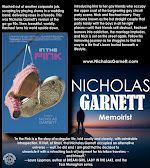









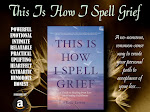
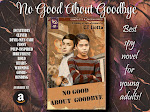



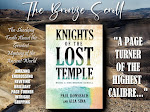










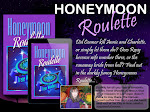


























Leave a Comment